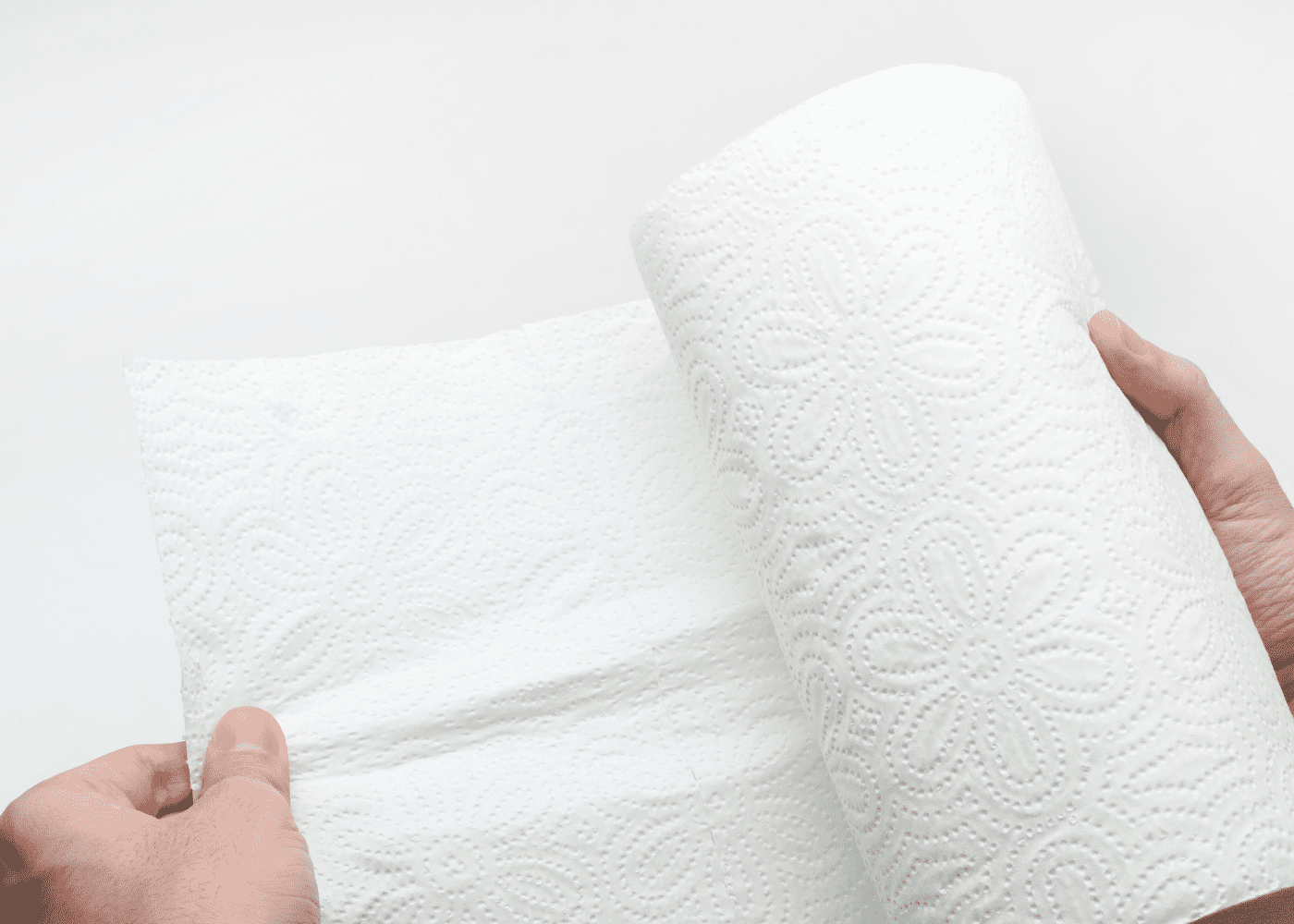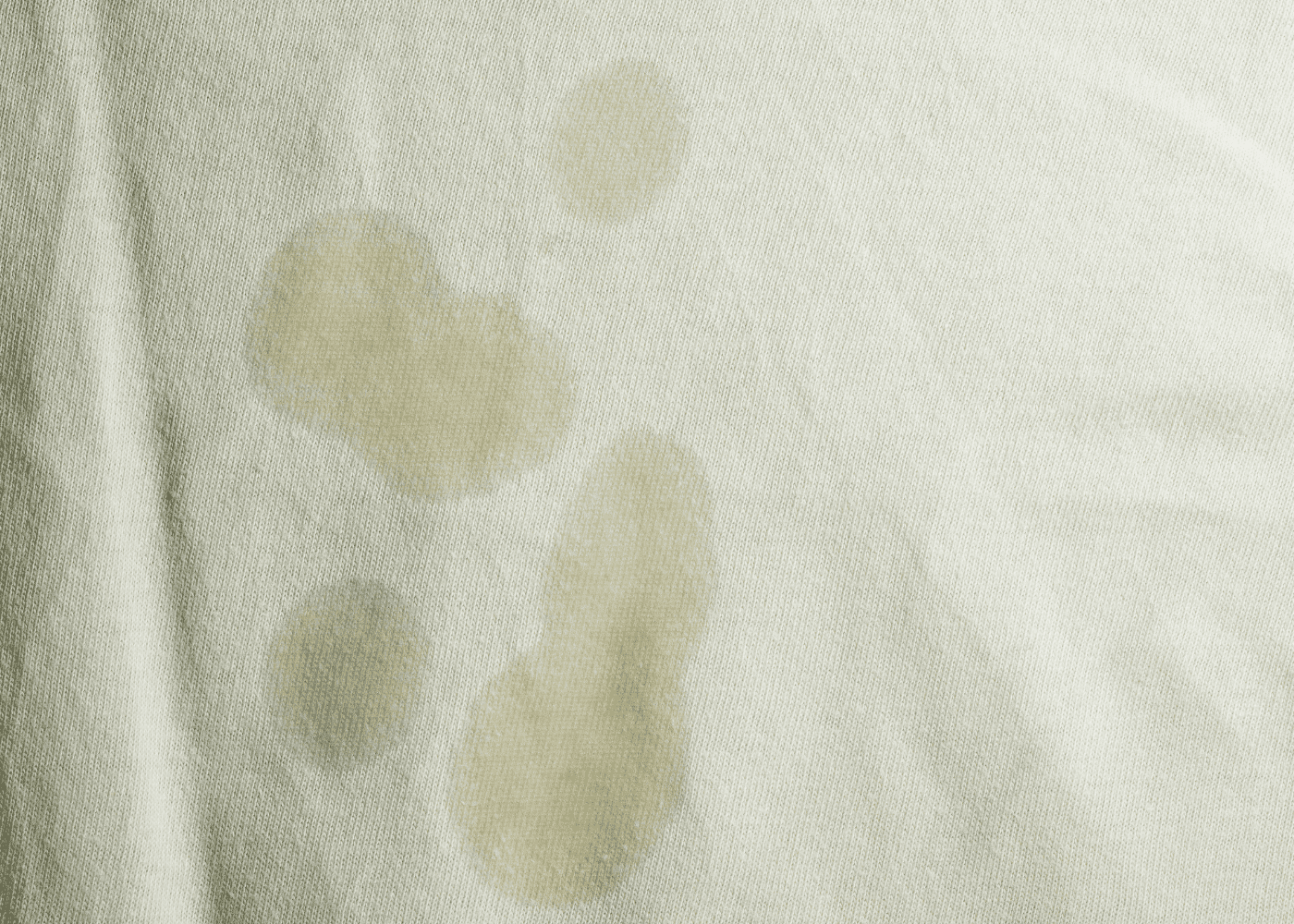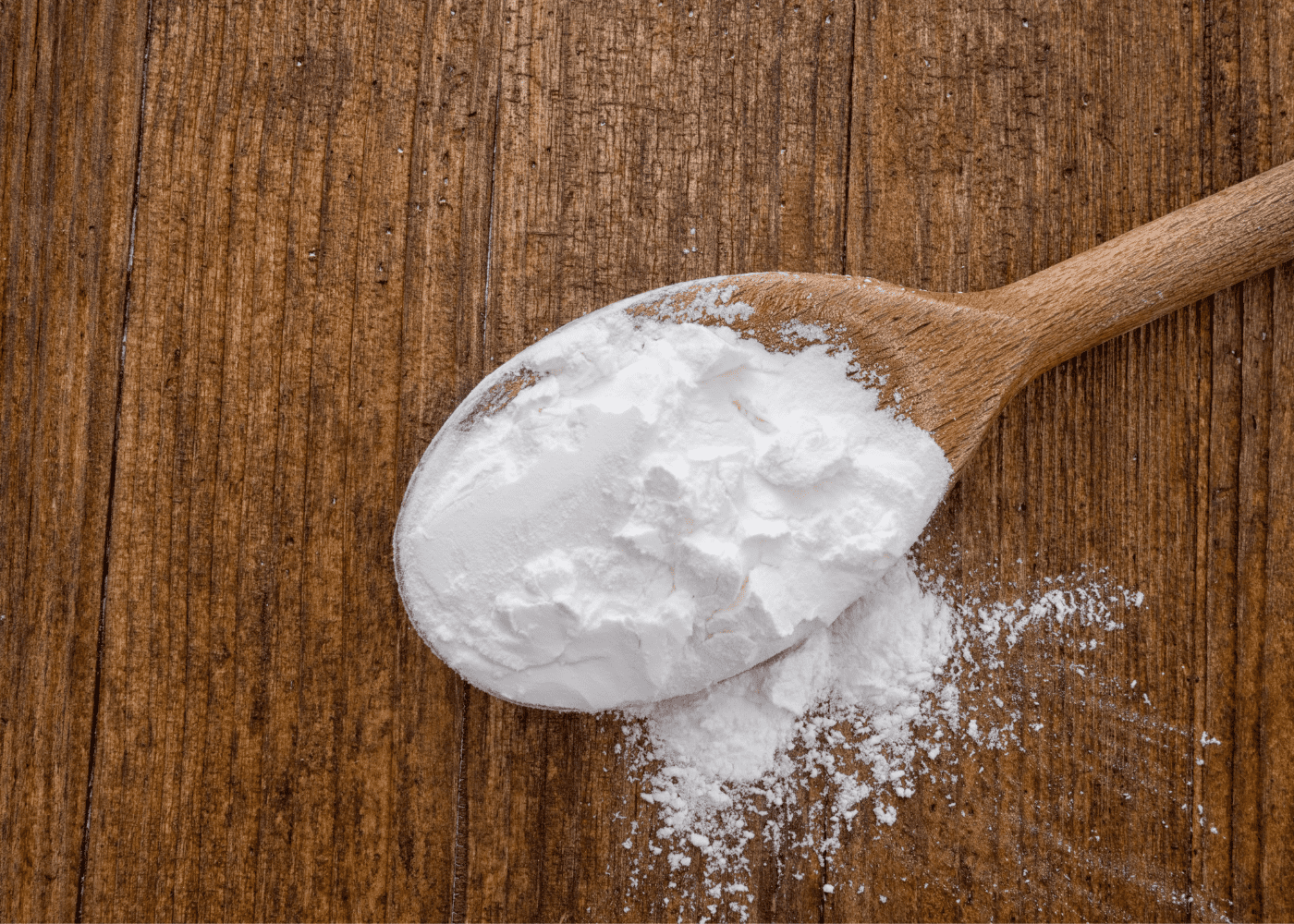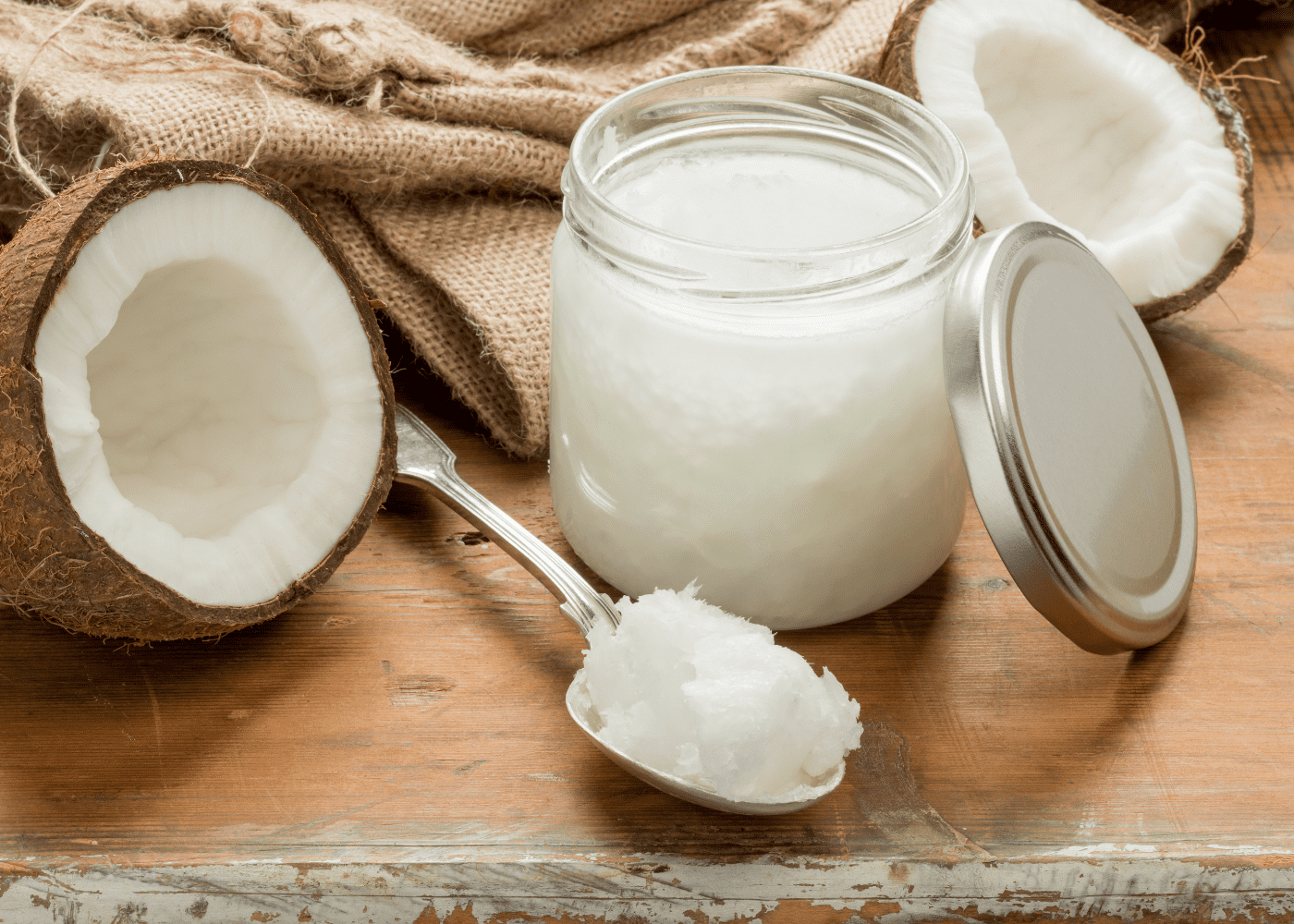Coconut oil has become a popular ingredient in cooking, baking, and skincare, but it’s not so great when it gets on your clothes. Whether you spilled some while cooking or got some on your favorite shirt while moisturizing, getting coconut oil out of clothes can be a daunting task.
However, fear not! In this blog post, we’ll share some effective methods for how to get coconut oil out of clothes, so you can get back to wearing your favorite outfits without any unsightly marks. From using dish soap to white vinegar, we’ve got you covered with these easy-to-follow tips and tricks.

The basic steps to remove coconut oil from clothing
Coconut oil can be tough to remove from clothes because it’s a greasy substance that tends to adhere to fabric fibers. Removing stains can be tough, but it’s not impossible! Save your stained clothes using the tips below.
Here are some steps you can take to try and remove coconut oil from your clothes:
- Blot the excess coconut oil from the clothing with a clean paper towel or cloth. Do not rub the oil as it may spread and become harder to remove.
- Apply baking soda on the affected area and let it sit for at least 30 minutes. Liberally sprinkly the baking soda on the coconut stains, because baking soda can help absorb the oil from the fabric.
- Shake off the baking soda and apply a small amount of liquid dish soap to the stain. Gently work the soap into the stain with your fingers or a soft-bristled brush.
- Let the soap sit on the stain for at least 10 minutes before rinsing with warm water. You may need to repeat this step several times until the stain is completely gone.
- Launder the clothing as usual, using the hottest water setting that’s safe for the fabric. Use your regular dishwashing detergent.
- Check the stain before putting the clothing in the dryer. If the stain is still visible, repeat the above steps before drying, as the heat from the dryer can set the stain.
- Ideally, you would air dry the garment to be sure that you did remove oil stains.
Please note that these steps may not work for all types of fabrics or all types of coconut oil stains. Always check the care label on your clothing and test any cleaning method on an inconspicuous area first.

Precautions: How to get coconut oil out of clothes safely
It’s important to note that not all fabrics or garments can withstand the same cleaning methods (especially delicate fabric). Before attempting to remove a coconut oil stain, always check the care label on your clothing to see if there are any specific instructions or warnings.
For example, some fabrics may be sensitive to hot water, bleach, or certain types of detergents. In addition, if the stain is particularly stubborn, you may want to try alternative cleaning methods, such as using a degreaser or enzyme-based cleaner.
Finally, if you’re hoping to prevent coconut oil stains, you may want to take precautions such as wearing an apron or using a towel to protect your clothes during cooking or skincare routines. By taking these precautions and being mindful of the type of fabric and cleaning methods you use, you can increase your chances of successfully removing coconut oil stains from your clothes while keeping them in good condition.
How to get coconut oil out of clothes using rubbing alcohol
A coconut oil stain can also be removed with rubbing alcohol, as long as you’re certain it won’t ruin the fabric.After testing rubbing alcohol on an inconspicuous part of your clothing to make sure it doesn’t cause damage, you can also try this method.
Here’s how you can use rubbing alcohol to remove coconut oil stains from clothes:
- Blot the excess coconut oil from the clothing with a clean paper towel or cloth. Do not rub the oil as it may spread and become harder to remove.
- Pour a small amount of rubbing alcohol directly onto the stain and let it soak for a few minutes.
- Use a soft-bristled brush or your fingers to work the rubbing alcohol into the stain, gently scrubbing in a circular motion.
- Rinse the stained area with warm water.
- Apply a small amount of liquid dish soap to the stain and gently work it into the fabric with your fingers or a soft-bristled brush.
- Let the soap sit on the stain for at least 10 minutes before rinsing with warm water.
- Launder the clothing as usual, using the hottest water setting that’s safe for the fabric.
Please note that rubbing alcohol can be harsh on some fabrics, so it’s important to test it on an inconspicuous area of the clothing first. You should also avoid using rubbing alcohol on delicate or synthetic fabrics, as it can cause discoloration or damage.
If the stain is still visible after washing, avoid drying the clothing in the dryer, as the heat can set the stain. Instead, air dry the clothing and repeat the above steps until the stain is completely gone.

How to get coconut oil out of clothes with other household cleaners
If the methods above don’t work to remove a coconut oil stain, here are some other things you could try. Remember, always do a spot test and follow the care label instructions for the fabric.
Other ways to get coconut oil out of clothes:
- Baking soda: Baking soda is a natural absorbent that can help lift coconut oil stains from fabric. First, blot the excess oil with a paper towel, then sprinkle baking soda onto the stain. Let it sit for at least 30 minutes, then brush off the baking soda and launder the clothing as usual.
- Cornstarch or baby powder: Cornstarch and baby powder are other natural absorbents that can help remove coconut oil stains from clothes. First, blot the excess oil with a paper towel, then liberally sprinkle cornstarch or baby powder onto the stain. Let it sit for at least 15 minutes, then brush it off and launder the clothing as usual.
- Another option is arrowroot powder. Follow the same steps above and then brush off the arrowroot powder prior to cleaning on the regular wash cycle.
- Dawn dish soap: Dawn dish soap is known for its grease-fighting power and can be effective at removing coconut oil stains from clothes. First, apply a small amount of Dawn directly to the stain and let it sit for 10-15 minutes. Then, launder the clothing as usual with the dishwashing liquid on it.
- Vinegar: White vinegar is a natural cleaner that can help break down coconut oil stains. First, blot the excess oil with a paper towel, then apply vinegar to the stain and let it soak for 10-15 minutes. Rinse the stained area with warm water, then launder the clothing as usual.
- Enzyme-based stain remover: Enzyme-based stain removers are designed to break down organic stains like coconut oil. Apply the stain remover directly to the stain, following the manufacturer’s instructions, then launder the clothing as usual.
For more house-cleaning tips, read our post here.
Tips and tricks for removing coconut oil stains
- Act quickly: The key to removing coconut oil stains is to act quickly and avoid letting the stain set in. Dealing with fresh coconut oil stains is way easier!
- Use a pre-treatment: If the stain is particularly stubborn, try using a pre-treatment product before washing the clothes to remove coconut oil.
- Avoid using hot water on delicate fabrics: If you’re dealing with delicate fabrics, avoid using hot water as it can damage the fabric.
- Avoid using bleach: Bleach can react with coconut oil and make the stain worse.
Prefer video? Watch this!
Conclusion
In conclusion, coconut oil has become a popular ingredient in cooking, baking, and skincare, but it can be tough to remove a coconut oil stain from clothing. Thankfully, there are several effective methods to remove coconut oil stains from clothes.
Here’s how to get coconut oil out of clothes: The basic steps include blotting the excess oil, using a cleaning product like baking soda, liquid dish soap, or rubbing alcohol to clean the spot, and washing the clothing in the hottest water setting safe for the fabric. Before putting the garment into the dryer, be sure to check that the stain has been cleaned off. If you put it into the dryer before it’s completely cleaned you could set the stain.
It’s also important to take precautions and check the care label on your clothing before attempting any cleaning method. By being mindful of the type of fabric and cleaning methods used, you can increase your chances of successfully removing coconut oil stains from your clothes while keeping them in good condition.
Frequently asked questions about how to get coconut oil out of clothes
Does coconut oil permanently stain clothes?
Yes, you can get a coconut oil stain on clothing quite easily. But, you can quickly clean it with common household items such as paper towels, baking soda, and dishwashing soap.
What draws oil out of clothes?
Baking soda is excellent for stain removal. You can also use baby powder, corn starch, or arrowroot powder in place of baking soda.
What is the fastest way to get oil out of clothes?
1. Use a clean cloth or paper towel to blot away as much of the excess oil as possible.
2. Sprinkle baking soda or cornstarch on the oil stain and let it sit for 10-15 minutes. These powders can help absorb the oil.
3. Shake off the baking soda or cornstarch and brush away any residue.
Apply a small amount of dish soap directly onto the stain and work it in with your fingers or a soft-bristled brush.
4. Let the soap sit for a few minutes, then rinse the area with warm water.
5. Check to see if the stain has been removed. If not, repeat the above steps until the stain is completely gone.
6. Wash the garment in the washing machine on the hottest setting recommended for the fabric.
Make sure to check the care label of your garment before trying these steps and always test on an inconspicuous area first to avoid any damage.
Resources
Enjoy this article? Check these ones out too!
- Quick and easy house cleaning tips
- How to get crayon stains out of clothes
- How to clean seat belts
- How to get detergent stains out of clothes
- How to get mascara out of clothes
All things cleaning
Check out more articles about all things cleaning, from your house to your car!


Leave a Reply